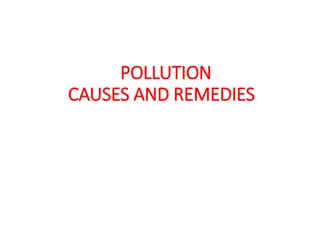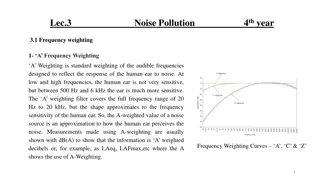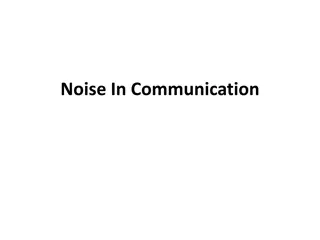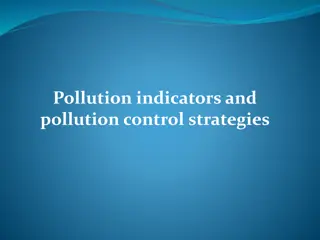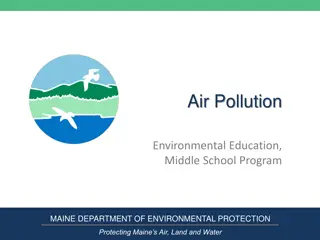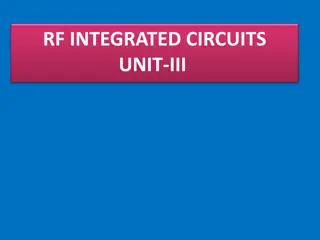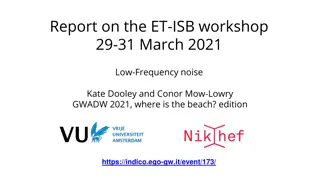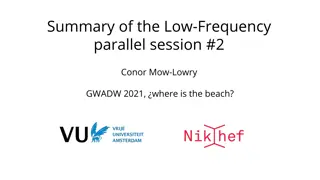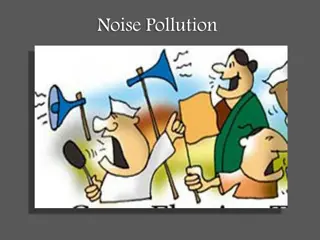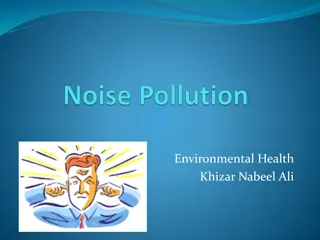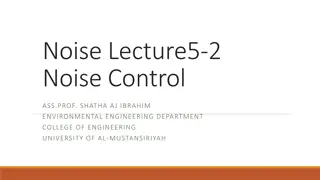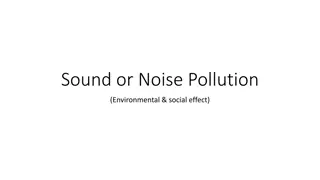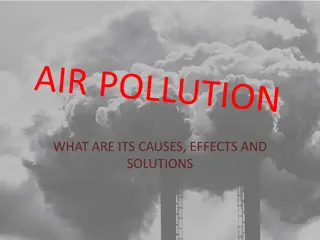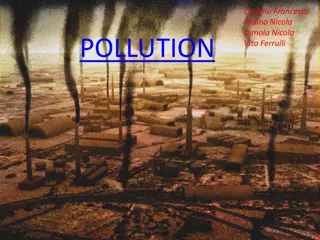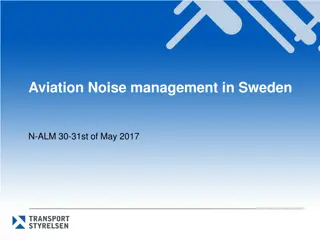Understanding Noise Pollution: Causes, Effects, and Control Measures
Undesired or excessive sound, known as noise pollution, can have harmful effects on human health, wildlife, and the environment. It is caused by various sources such as industries, workplaces, highways, railways, and airplanes. Sound waves, measured in decibels, play a crucial role in determining the impact of noise pollution. Effects include hearing loss, high blood pressure, heart disease, and stress. Control measures involve suppression at the source, acoustic zoning, use of sound insulation, and legislative actions.
Download Presentation

Please find below an Image/Link to download the presentation.
The content on the website is provided AS IS for your information and personal use only. It may not be sold, licensed, or shared on other websites without obtaining consent from the author. Download presentation by click this link. If you encounter any issues during the download, it is possible that the publisher has removed the file from their server.
E N D
Presentation Transcript
NOISE POLLUTION Dr.Sanjay Srivastava Botany department Harish Chandra P.G.College Varanasi
Definition Definition Any undesired or excessive sound that can have harmful effects on human health, wildlife and environmental quality is called noise pollution.
Sources of noise pollution Industries workplaces highways Railways airplanes construction activities ceremonies and festival celebrations use of pressure horns etc.
sound waves sound waves sound waves are the vibrations of molecules of air which are carried from a source to the ear. Loudness of sound wave which is also called sound pressure level or SPL is measured in in logarithmic units called decibels (dB). Whispering 40dB Normal voice 60dB Playground 80dB Pneumatic drill 110dB Plane take off 130dB
Effects of noise pollution Effects of noise pollution All sounds above 90 dB are harmful for the inner ear. Irreparable damage can occur above 120 dB. Noise pollution causes many types of problems in human beings such as noise induced hearing loss(NIHC), high blood pressure, heart disease,sleeping disorder, stress etc.
Control of noise pollution Control of noise pollution Control at the receiver s end Noise suppression at source Acoustic zoning Use of sound insulation Planting trees (green muffler) Legislative measures
Control at receivers end use of Ear plugs Ear muffs Noise helmets Headphones
Noise suppression at source level Designing Quieter machines use of proper lubricants better maintenance of Machines use of sound proof Chambers silent generators use of improved silencers
Acoustic zoning Increasing the distance between source and receiver Zoning of noisy areas Keeping residential areas such as educational institutions and hospitals away from noisy areas such as railway stations, airports industries, air bases,airports etc.
Sound insulation Use of sound absorbing materials Use of Acoustic tiles Use of perforated plywood Peat (obtained from Sphagnum)should be used for soundproofing of rooms etc.
Tree plantations trees should be planted alongside roads, hospitals, educational institutions Green muffler: it is a method of controlling noise pollution by planting 4 to 6 rows of trees around noisy places.
legislative measures Noise pollution Regulation and control rules 2000. Central pollution control board (CPCB)has set the permissible noise levels for different areas : for industries 75 dB(day) 70 dB (night) commercial areas 65 dB (day) 55 dB(night) residential areas 55 dB(day) 45 dB(night) Silent Zone have been demarcated- these are are areas within hundred metre of schools colleges hospitals and courts. The sound which is permissible for silent zones is 50 dB (day) 40 dB(night)
What we can do What we can do At home: Avoid playing music at high volumes in houses. Plant trees around homes.
At workplace or college: Strict silence should be maintained in library and classrooms. Shouting or speaking loudly (even on mobiles) should be avoided Using earphones or headphones while playing music or having online classes Even hearing music through earphones and headphones regularly and at high volumes can harm our own hearing capacity.
On road : Pressure horns should not be used in vehicles. Excessive honking is wrong and should be avoided Use of loudspeakers on vehicles should be avoided
In Ceremonies and festivals: Loudspeakers should be replaced by low sound speakers Follow the time limit set by authorities while using speakers and public address systems Use of crackers should be at the minimum. It causes both sound and air pollution.


